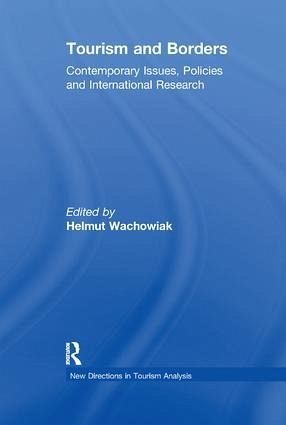
Tourism and Borders
Contemporary Issues, Policies and International Research
Herausgegeben: Wachowiak, Helmut
Versandkostenfrei!
Versandfertig in 6-10 Tagen
45,99 €
inkl. MwSt.

PAYBACK Punkte
23 °P sammeln!
Although globalization has led to increased cross-border traffic, there has been little examination of how crossing political boundaries affects tourism and vice versa. Bringing together case studies from Europe, the USA and Southern Africa, this volume discusses current issues and policies, destination management and communication, and planning in cross-border areas. Topics studied include borders as tourist attractions and destinations in their own right, as barriers to travel and the growth of tourism, boundaries as links of transit and the growth of supranationalism. The book concludes tha...
Although globalization has led to increased cross-border traffic, there has been little examination of how crossing political boundaries affects tourism and vice versa. Bringing together case studies from Europe, the USA and Southern Africa, this volume discusses current issues and policies, destination management and communication, and planning in cross-border areas. Topics studied include borders as tourist attractions and destinations in their own right, as barriers to travel and the growth of tourism, boundaries as links of transit and the growth of supranationalism. The book concludes that the role of borders has changed dramatically in recent years. Many more borders that have traditionally hosted large-scale tourism are becoming more difficult to cross, primarily because of safety and immigration concerns. On the other hand, places that were once forbidden to foreigners are now opening up and new destinations are becoming more commonplace.














